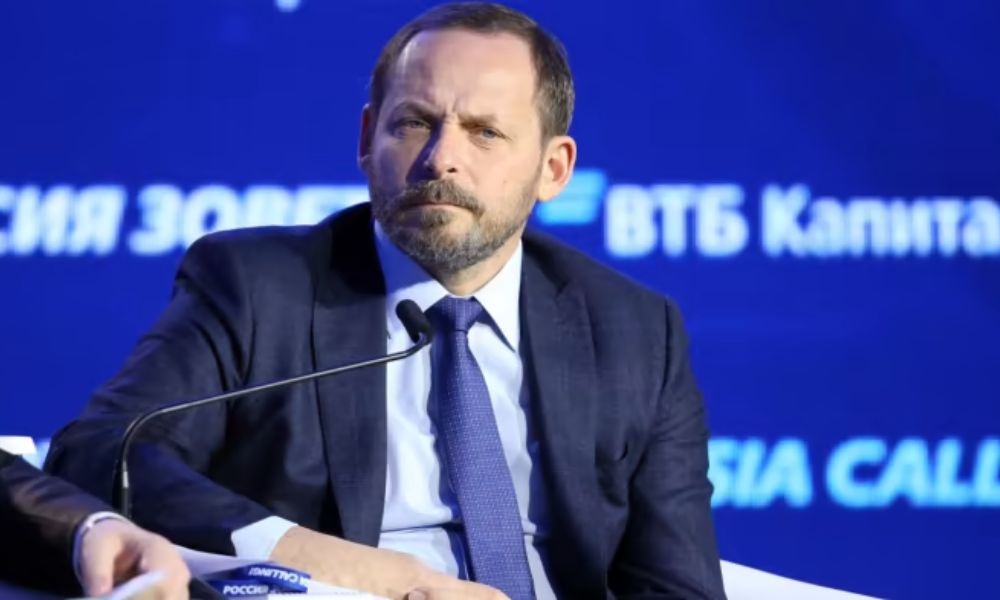
Arkady Volozh, co-founder of Russian tech giant Yandex, has formally requested that the EU lift sanctions against him in the first big test of whether the bloc will reward prominent figures who publicly break with the Kremlin.
Lawyers for Volozh petitioned the EU to repeal the measures days after Volozh condemned Vladimir Putin’s ‘barbaric’ invasion of Ukraine, according to people familiar with the move. The request will be discussed by EU officials next month.
Volozh’s request comes after he became only the second prominent Russian billionaire to unreservedly denounce the war in Ukraine earlier this month, prompting calls from diplomats, officials and other sanctioned individuals for the EU to respond.
The case has raised the issue of whether policymakers should include “off-ramps” for sanctioned Russian elite figures who speak out against the invasion.
Volozh’s decision to publicly condemn the war “poses a tricky question” for the EU given its aim to use sanctions as a tool to encourage targeted individuals to change approach and weaken the Kremlin, two western officials told the FT.
“Frankly, it is hard to imagine what else he could do,” said a person close to Volozh. “And there are hundreds of other sanctioned Russian businessmen watching closely to see what Brussels does.”
|
Are you a Tax Lawyer in USA? |
Volozh, 59, has lived in Israel since 2014 and has not returned to Russia since Putin ordered the invasion in February last year. He declined a request for comment.
He resigned as chief executive of Yandex, Russia’s answer to Google, and surrendered his voting rights after the EU sanctioned him last year for what it described as Yandex’s complicity in the war.
Although Volozh, like many others in Russia’s elite, was horrified by the war from the outset, he refrained from speaking out against it until earlier this month after drafting and scrapping several other similar statements.
“Arkady wanted to say all of this from day one of the war. But he felt he was responsible for his people [in Russia],” one of them said. “They’re finally all out – that’s the main reason why this happened now.”
Since then, former finance minister Alexei Kudrin has led complex and fraught negotiations with the Kremlin to spin off Yandex’s international projects and sell Volozh’s controlling stake.
In recent months, however, the deal has stalled amid disagreements over finding potential buyers amenable both to western authorities and the Kremlin, prompting some people close to Yandex to worry Russia could nationalise it.
Volozh has been criticised by anti-war Russians who said he was insufficiently penitent about Yandex’s role in spreading Kremlin propaganda through its online news platforms. Yandex sold them to state-owned VK last year.
After the criticism Volozh said “some things could have been done differently”, without elaborating.
“Sanctions of course play a role. He really worries about sanctions and his reputation,” the person said. “And he is really against the war and wanted to be vocal about that from the beginning.”
EU sanctions relating to Russia’s invasion of Ukraine are reimposed every six months. Volozh hopes he can convince the EU not to renew the sanctions against him when they expire on September 15, according to people close to him.
EU sanctions can be lifted in accordance with court rulings or if member states agree that there is “convincing evidence” that the person or entity “no longer fulfils the listing criteria”, a spokesman for the European Commission said.
The only person to so far overturn western sanctions on the basis of their anti-war stance is the eccentric fintech tycoon Oleg Tinkov, who has loudly denounced Putin and the invasion. The UK removed sanctions against him last month, citing his statements as a reason for the decision.
Several sanctioned oligarchs have told the FT they have been put off speaking against the war by the lack of a formal procedure in the US, UK, and EU for lifting the sanctions if they did so.
“If they have some procedure, like say, let’s sign a declaration, then that would be very easy, right? If they believe it is crucially important . . . we will sign and publish it,” one oligarch said.
No member state has raised the issue of Volozh’s delisting in a formal meeting of EU member states, two diplomats told the FT.
“I don’t think anything will happen, unfortunately,” another person close to Volozh said. “[Other sanctioned Russians] were convincing themselves they were oh-so close before . . . and that was completely wishful thinking.” (Source)